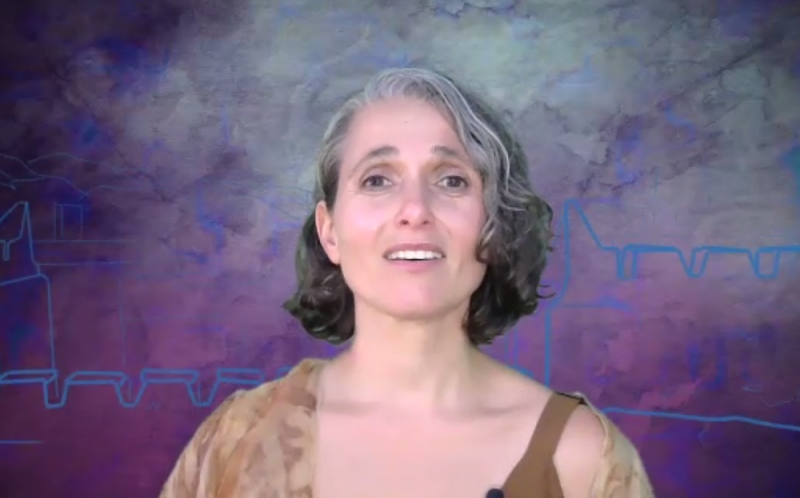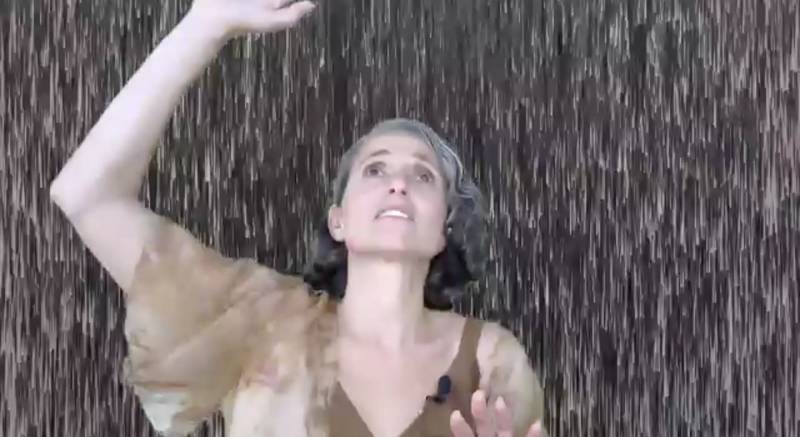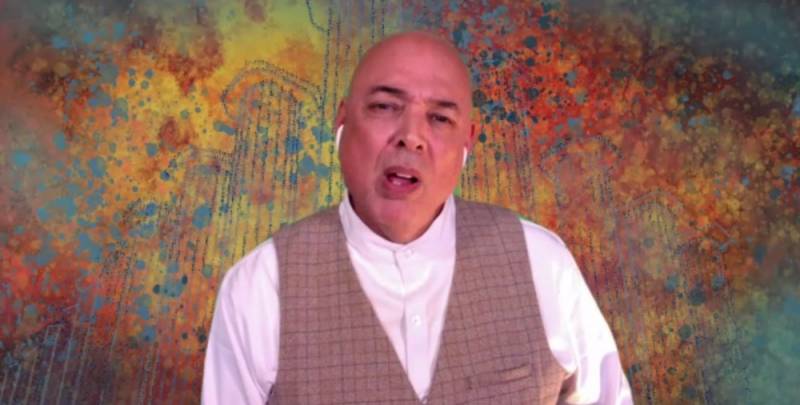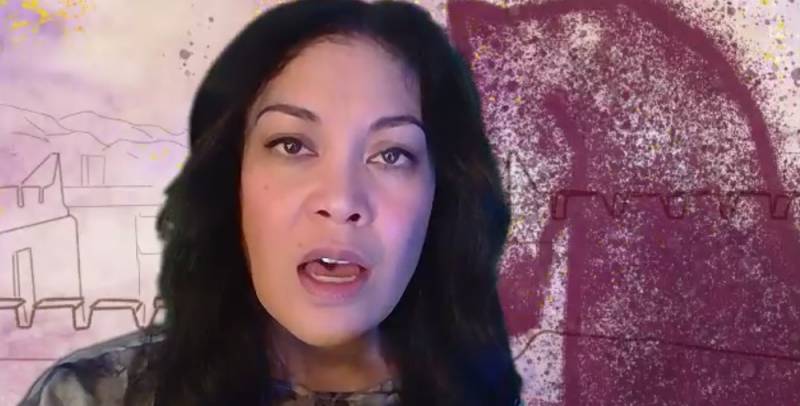In times of great violence, the ability to tell the future would seem to be a welcome advantage. To gaze into a crystal ball, roll the dice, consult the oracle and be forewarned—which is to say, forearmed. But what of the prophet whose visions are ignored and whose words fall like ineffectual rain on a wasteland of doubters? It’s in this scenario we find Cassandra, doomed to see the future, but powerless to alter it.
Now, a new retelling of the Cassandra myth by Garret Jon Groenveld plays out as part of the PlayGround Zoom Fest. Disbelief premiered as part of the festival on Zoom on May 30, and is available on demand through June 30.
In Groenveld’s Disbelief, directed by Tracy Ward, Cassandra may be unable to change her fate, but her demeanor is far from that of a shunned madwoman. Portrayed by Nora el Samahy, this Cassandra faces her destruction with a grounded frankness. Matter-of-factly she lays out her truth for all to hear, and when the populace inevitably fail to heed her, refuses to internalize their inability to believe her as her fault. This self-assured Cassandra knows she’s not to blame for the skepticism of others, even though it costs her credibility, and eventually her life.

In Groenveld’s take, Cassandra’s defining trait is not the futility of her prophecies, but the courage of her convictions. Given the “gift” of future sight by the God Apollo, whose motivations are strictly self-serving, she’s consequently cursed by him when his amorous advances are rebuffed. It’s a state of affairs the two keep circling around in repetitive confrontations that occasionally stray into poetics, but which never resolve the tension between them.
As Apollo, Michael Torres gives off superficially affable, white-collar “civility” vibes while systemically creating a torturous cycle from which Cassandra cannot escape. In turn, el Samahy’s Cassandra displays a patient didacticism that Apollo cannot dismantle with his professions of love. Again and again, she explains she cannot love him as he wants her to, but he is blind to his own disbelief.




